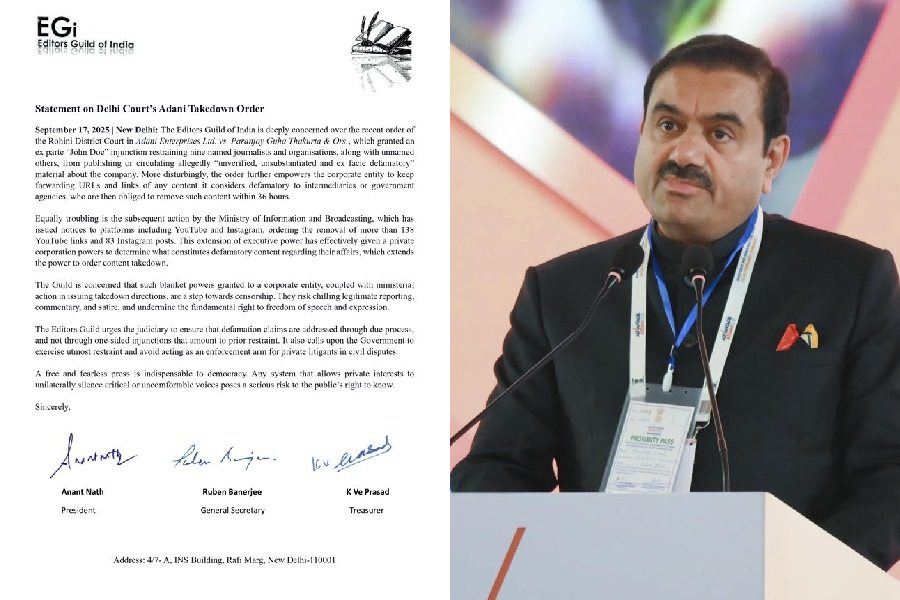The Editors Guild of India and the Press Club of India have called out the Andhra Pradesh Police on Friday for filing multiple FIRs against Sakshi daily, warning that the cases reflect a misuse of criminal law to intimidate journalists.
Both bodies said the action signals a pattern of targeting the press when its reporting inconveniences those in power.
In a letter to chief minister N. Chandrababu Naidu, the Editors Guild called the move “disturbing.”
It noted that cases were lodged in different police stations, including one for simply reporting on a news conference by an Opposition leader, an event covered by several other newspapers and television channels.
“This selective application of criminal law appears to be an overreach by the police,” the Guild said. It urged the chief minister to “ensure that the media in Andhra Pradesh is not subjected to harassment through frivolous or selective criminal complaints.”
The letter said: “The conduct of the police must reflect professionalism and impartiality, and should not give the impression of vindictiveness against any publication. Criminal laws should not be weaponised to stifle or intimidate journalists for carrying out their duties in the public interest.”
The Press Club of India’s statement said, “Deeply perturbed by the systematic hounding of the Editor and journalists of Sakshi newspaper by the Andhra Pradesh Police for publishing routine news stories.”
A total of four FIRs have been filed in different districts under various sections of the Bharatiya Nyaya Sanhita (BNS). Two of those are for coverage of a single press conference by an Opposition party leader.
“Other newspapers and media outlets too reported about the press conference, but only Sakshi seems to have been singled out,” the Press Club said.
“After reviewing the contents of the FIRs, it appears that criminal laws have been invoked selectively, and frivolously, against the editorial staff of the newspaper. Prima facie, these FIRs appear to be a textbook case study of the State using the coercive power of criminal laws to trample upon press freedom that is guaranteed under Article 19(1)(A) to (G) of the Constitution,” it added.
The Andhra Pradesh high court has granted interim protection to the journalists named in the FIRs and restraining the police from taking coercive action until investigations are complete.
But the Press Club warned that the case fits into a larger national pattern. It said these FIRs “conform to a wider and disturbing pan-India trend of filing multiple criminal complaints at different police stations, and at times in different states, against journalists on the flimsiest of grounds for publishing news articles that are perceived to cause inconvenience to those in power or in positions of authority.”
The body reiterated its stand that “editorial disputes must be resolved under civil laws and not criminal laws.”
“We appeal to the Andhra Pradesh chief minister, Chandrababu Naidu, to restrain the state police from going on fishing expeditions for victimising journalists for publishing stories in public interest. We are hopeful that the CM will do the needful,” it added.











